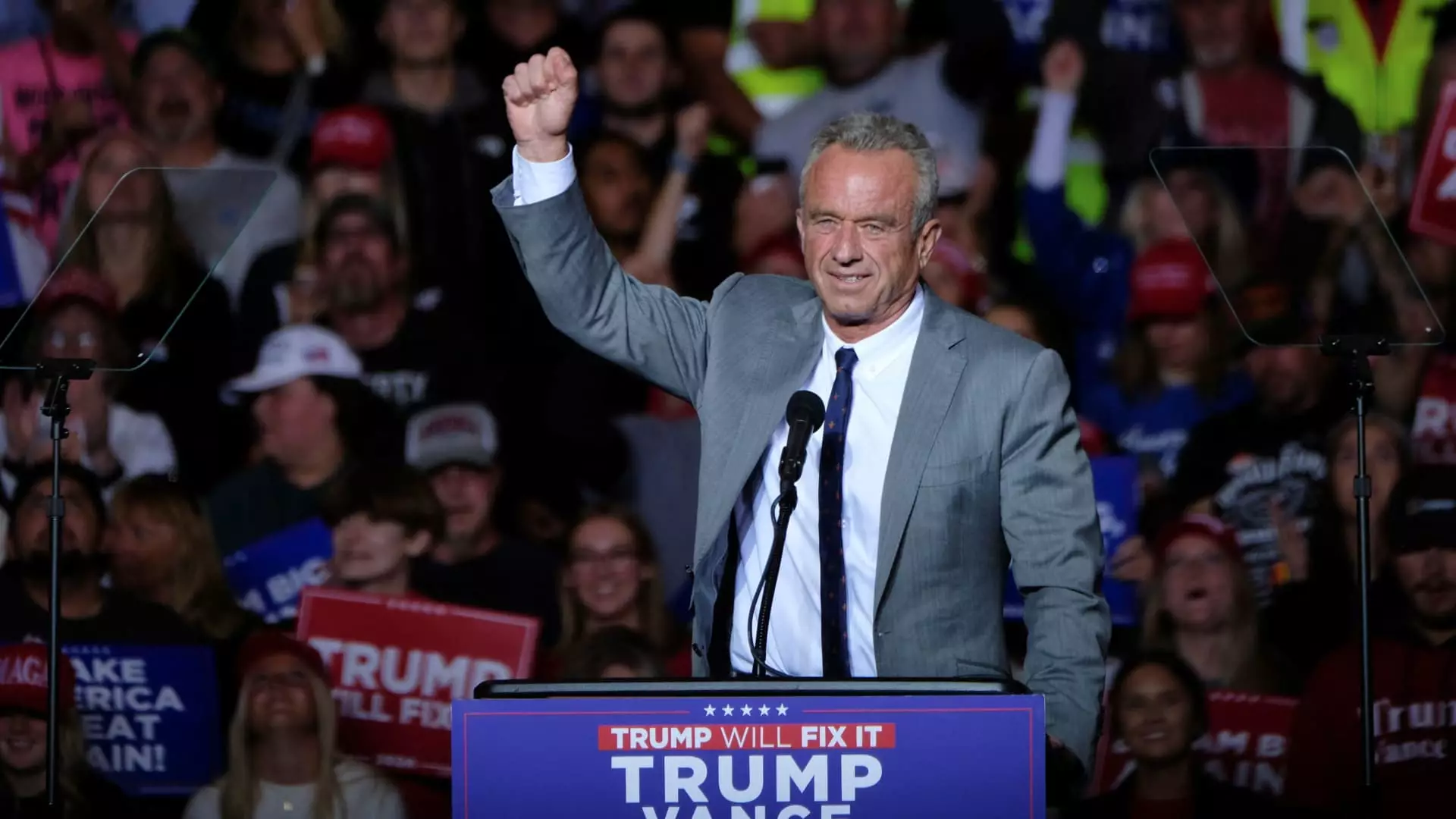In recent financial markets, the stock performance of dental care suppliers has been illuminated by the nomination of Robert F. Kennedy Jr. as a potential Health and Human Services secretary under President-elect Donald Trump. Investors in Henry Schein, a significant player in the dental supply industry, observed a notable increase in stock value—rising nearly 5%—as speculation grew that Kennedy may recommend the removal of fluoride from public water systems. This potential policy shift is viewed as a precursor to increased dental visits, which would consequently drive demand for dental care products and services.
The context of this uptick in stock price is underscored by the historical role of fluoride in dental health. The mineral has been widely praised for its efficacy in preventing cavities; however, controversies surrounding its safety have given rise to debates in various communities regarding its use in public water systems. As Kennedy’s intentions become the focal point of investor speculation, the underlying assumption is that if fluoride were to be eliminated, individuals seeking alternatives to maintain their dental health would likely turn to professional dental services. This could result in a surge of appointments at dental practices, thus significantly benefiting companies like Henry Schein.
Henry Schein’s rise in stock price was not an isolated incident. Other dental product manufacturers, such as Dentsply Sirona and Envista, also registered modest gains during the trading session. This collective movement of dental stocks hints at a growing optimism among investors that the dental care sector could thrive under anticipated policy changes. As healthcare regulations evolve alongside the nomination of Kennedy, investors are increasingly examining dental hygiene stocks for potential profitability in light of shifting public health perspectives.
The implications of Kennedy’s nomination extend beyond HHS; they signal a potential shift in how dental health policies might be formulated and implemented. With fluoride being a contentious topic, local governments and health agencies may reevaluate existing guidelines, creating an environment ripe for increased business activity in the dental sector. Industry experts like Don Bilson from Gordon Haskett observe that the anticipated decrease in fluoride use could paradoxically lead to an increase in tooth decay and, consequently, dental visits, creating a cycle that feeds into the demand for dental products.
The market dynamics following Kennedy’s nomination illustrate broader trends within the healthcare sector as investors grapple with the implications of his history as a vaccine skeptic and his controversial perspectives on public health advising. While stocks in dental care found a silver lining, other segments within healthcare saw a tumultuous reaction to his nomination. Pharmaceutical companies, contract research organizations, and health insurers experienced sharp declines, reflecting the apprehension among investors regarding regulatory changes that could come with Kennedy in power.
Simultaneously, processed food companies faced increased scrutiny as Kennedy’s past remarks regarding nutrition and public health came to light, resulting in a swirl of selling activity across diverse sectors of the market. Such volatility exemplifies how political appointments can catalyze widespread changes in investment sentiment across an entire industry, causing trepidation even among firms that seem only tangentially related to the new administration’s health policies.
Looking forward, while the immediate stock performance reaction to Kennedy’s nomination suggests a positive outlook for dental product suppliers, the reality of regulatory changes remains complex. Experts caution that any significant alterations to public health policies, including fluoride regulations, may take years to materialize. Furthermore, the Environmental Protection Agency (EPA) primarily oversees drinking water standards, suggesting that HHS may not wield direct authority over fluoride policies, which adds another layer of uncertainty.
The potential dichotomy between Kennedy’s public health philosophies and regulatory realities will likely dictate the trajectory of the dental care market in the coming years. As stakeholders navigate this complex landscape, understanding the interplay between political decisions, public health guidelines, and consumer behavior will be critical for investment strategies in the dental care sector. Overall, while the stock market response suggests optimism among dental care suppliers, the longer-term implications of evolving health policies remain a compelling watch for investors and industry professionals alike.

Leave a Reply